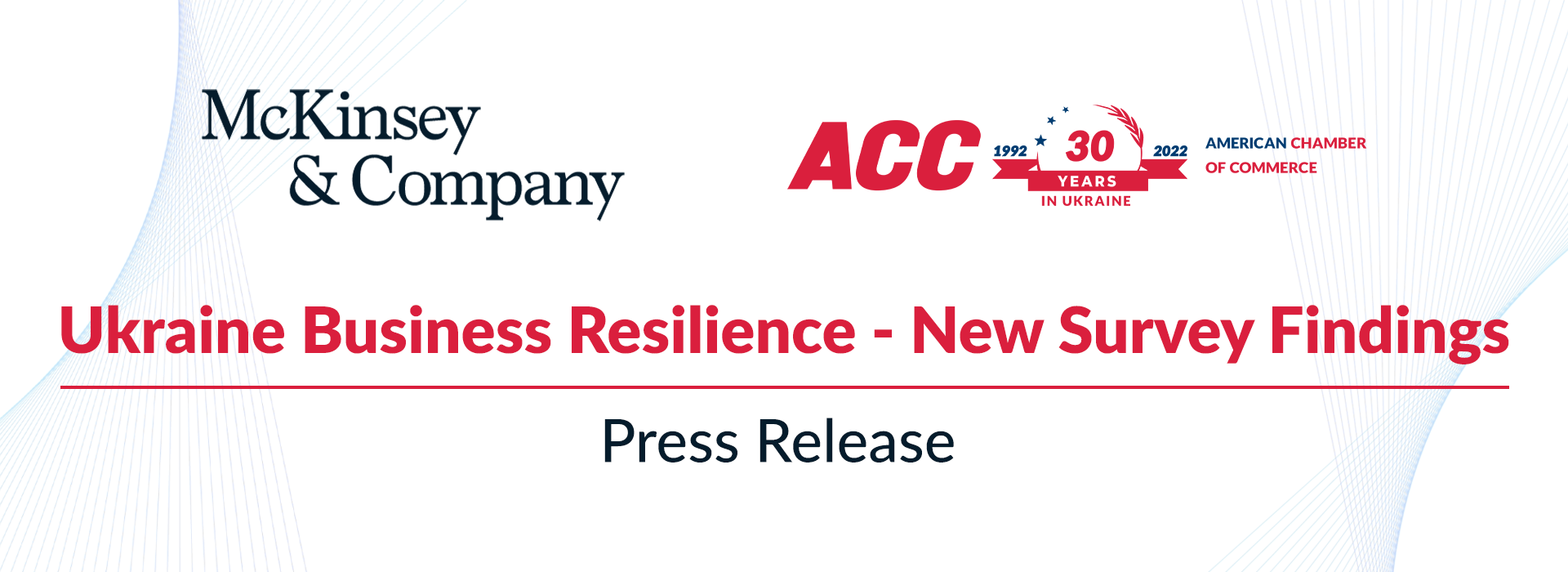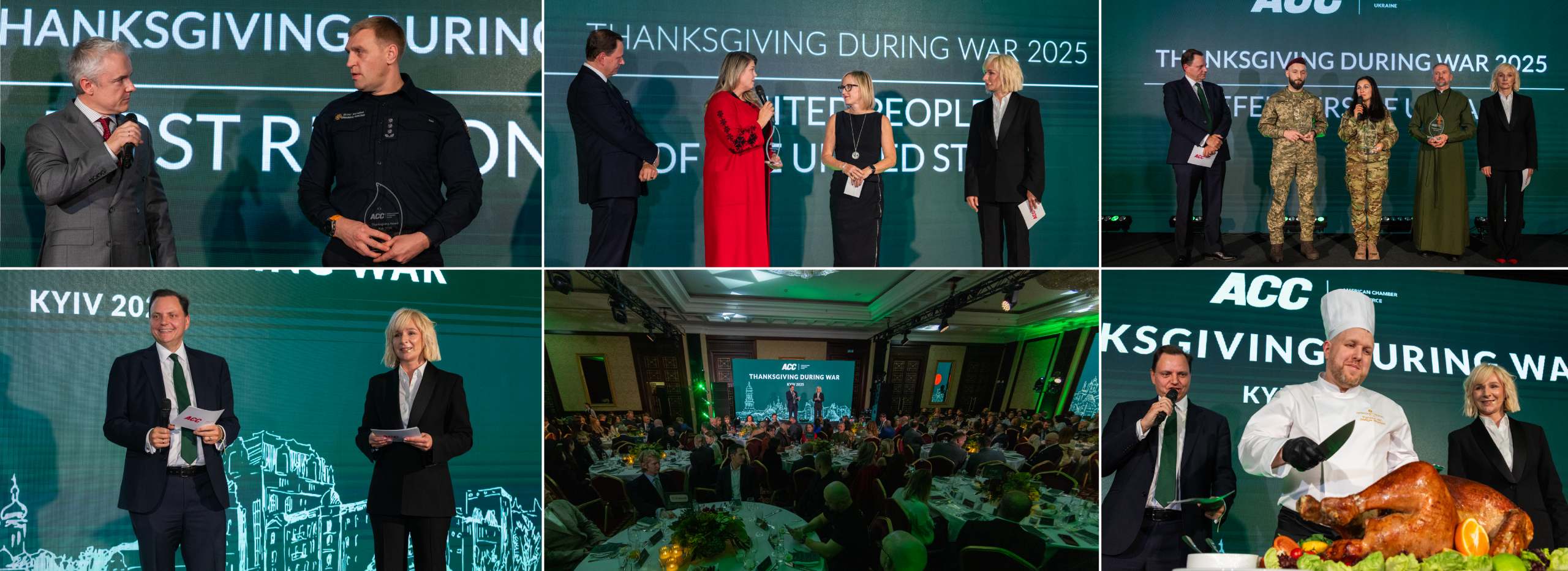February 22nd, 2023
The American Chamber of Commerce in Ukraine today presented the latest Business Resilience Survey results, delivered by McKinsey & Company Ukraine, on the first anniversary of Russia’s war in Ukraine. The Survey offers valuable insights into the realities of doing business during the war and the unique experiences gained by resilient businesses operating on the ground.
The key findings of the Survey reveal:
The war has put a massive toll on Ukrainian business, however, companies demonstrated strong resilience, with some even capturing growth opportunities. 47% of companies experienced a sales decline with agriculture, retail, mining, and metallurgy being the most hit. Only 2% of companies reduced headcount by more than 30% despite a more significant sales decline. Around 15% of companies have grown in 2022 despite the war.
The war pressure on business is likely to stay or even increase in 2023. Decreased demand (25%), physical damage of facilities (23%), and disrupted supply chains (19%) have been called among the main single challenging impacts of war in 2022. Aggregated demand is likely to further deteriorate in 2023 as overall GDP growth remains uncertain, and the consumer spending power might further weaken (incl. drain of savings, increasing unemployment, salaries cuts).
Most companies have developed in-house “contingency plans”, but >40% of companies see their plans as not fully effective. 90% of companies have developed “contingency plans”, out of which: 61% have established pre-war dedicated task forces (cross-functional teams or specialized risk function), 33% have developed such plans by the business units, and 6% have leveraged professional external help to prepare such plans. 40% of companies acknowledged that the plan did not properly work, incl. 29% did not anticipate the scale of disruption, and 7% did not have adequate resources to implement the plan.
While agile operating model is seen as the most helpful factor to address ongoing crisis, going forward businesses see diversification, more effective contingency planning, and building resilient teams as key priorities. Agile operating model and strong corporate culture have been seen by business as the key factors, helping to address the challenges created by war (called #1 factor by 26% of companies). Going forward, the companies see the following priorities to better prepare for the crisis: strategy and business diversification, which would require rethinking investment plans (46%); more effective (and unbiased) contingency planning (29%); attracting and maintaining a resilient team and workforce (18%).
Andy Hunder, President of the American Chamber of Commerce in Ukraine, said: “On the first anniversary of the full-scale war, business continues to show robust resilience. Going forward, businesses see diversification, more effective contingency planning, and building resilient teams as key priorities”.
Oleksandr Kravchenko, Managing Partner at McKinsey & Company for Ukraine, noted: “Ukrainian business has demonstrated very strong resilience during the first year of the war. The war is ongoing, and companies need to keep their crisis plans updated. This survey will help to identify some of the lessons learned and compare with international best practices”.
Full results of the Survey are available here.
About the American Chamber of Commerce in Ukraine:
The American Chamber of Commerce is Ukraine's most powerful international business association that has been serving 600+ members in Ukraine since 1992, delivering the shared voice of US, international, and Ukrainian companies, who invested over $50 billion in Ukraine and remain committed to the country. For more information, please visit our website and check the detailed 45-page AmCham Ukraine Annual Report 2022 with summarized AmCham activities, initiatives, messages, meetings, and highlights.




























